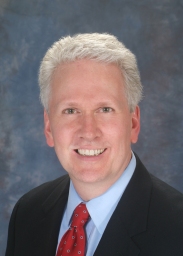Securing the right communications training consultant for your needs can be challenging. The right fit is important, assuming you care about your organizational goals.
Do you require an expert accustomed to working with Fortune 1000 corporations and large, sophisticated associations? Or are you looking for someone more attuned to small non-profit groups?
Do you prefer an adherent to sustained professional development or somebody who believes a one-and-done hit-and-run session can get the job done?
There are beaucoup questions to ask of prospective consultants. I’ve outlined some of them in “A Buyer’s Guide to Communications Strategy Consultants,” now in its seventh edition.
Let’s dig into a handful of those queries along with responses intended to help you as you conduct your search for the right match.
If your program occurs in conjunction with a larger meeting: Can you deliver a keynote or breakout session?
This tactic can help save on your budget. A few caveats: You must ensure that the candidate is a capable (if not enthralling) speaker since not every consultant possesses a golden tongue and magnetic message.
Also, while budget friendliness can be a factor, it should not be the factor in your decision. Going for the cheapest option is not likely to produce the results you desire and deserve.
Another consideration: Gauge the topics on which your consultant can speak (they should be able to furnish you with a list of possibilities including descriptions of the content). If those subjects don’t align with what your audience needs, it’s best to take a pass on this option for there are few things capable of dragging down a meeting like an off-topic keynote.
A personal note: I feel perfectly comfortable speaking about the three keys to great presentations, dealing with the media, and advocacy initiatives. When asked, however, to delve into internal communications, writing advice, or personnel matters, I’ll politely take a pass. Those issues are just not in my wheelhouse. It’s important to be frank about one’s areas of expertise.
 What type of simulations do you utilize?
What type of simulations do you utilize?
This gives you some insights into whether your contender will truly design a program specific to your situation or try to cram everyone into the same box.
They may not know initially exactly which simulation best suits your needs. That does, after all, require some discussion and deliberation. What you’re looking for here is some indication that they have plenty of arrows in their training quiver. Asking this question also gives you a ballpark idea of how you can begin preparing the training participants for their program.
Aim for answers that go beyond “We trot everyone to the front of the room for practice.” That’s not specific enough. If media training is involved, listen for some clue that they will replicate the format your spokespeople will face.
If presentation skills are at issue, stay attuned for signs that your consultant knows enough to pay attention to dealing with Q&A, nonverbal performance, and other facets important to you.
Tell me about your commitment to our executives’ professional development and to our long-term business goals.
Discussions with your prospects should focus on your bottom line. It may relate to financial, reputational, or public policy areas. It should not devolve into how great your spokespeople will look on stage on how they will be stars in the press. Those are features. You want to advance your key business and public policy objectives (at least I hope that is what you have in mind; on the face of it, who cares if your CFO can talk pretty?).
Also seek out assurances that the candidate adheres to the virtue of sustained professional development. This should be a long-lasting relationship capable of helping you not only with your institutional goals, but with your spokespeople’s ability to thrive in their careers.
Do you publish a client list or do you keep your work with us confidential?
Companies deal with sensitive information all the time. It may be a personnel matter, an active legal issue, or any number of other complications that you don’t want to trumpet in presentations and shout to reporters and policymakers.
That’s why I believe confidentiality to be important in the client-consultant bond. In fact, I made a vow when I founded Barks Communications in 1997 that I would not release a client list, and maintain that pledge to this day.
Don’t get me wrong. I very much appreciate when clients say nice things about me publicly and recommend me to colleagues. But I’m not in this to shamelessly use you as a springboard for my own ends.
My advice: If you get the sense that the consultant is looking at you primarily as a way to boost their business and build their case as an “influencer” (whatever that means), take a hike.
What other questions have you found it valuable to pose during your pursuit for communications training consultants? Chime in with a comment to help others with their searches.

